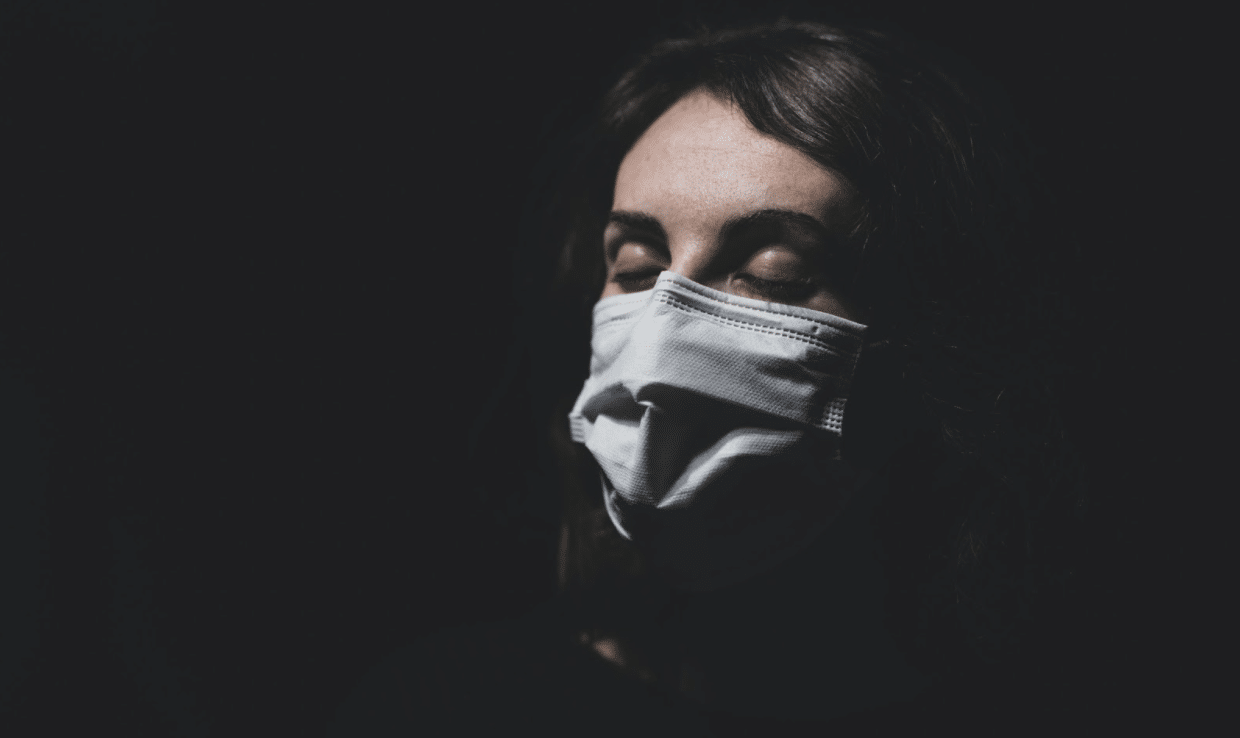Cocaine is a powerful stimulant and one of the most popular (and expensive) illicit stimulants in history. The high price and euphoric rush gave this drug the reputation of being more of a “high-class” or “luxury” drug. Gaining popularity in the United States in the 80s, this highly addictive substance continues to grow in popularity and abuse today, despite its schedule 2 federal classification.
According to the federal Drug Enforcement Administration, schedule 2 classification defined, “Schedule II drugs, substances, or chemicals are defined as drugs with a high potential for abuse, with use potentially leading to severe psychological or physical dependence. These drugs are also considered dangerous.”
What are the essential facts you need to know about cocaine addiction?
Cocaine Effects
Cocaine is an upper, heavy amount of dopamine, the neurotransmitter dopamine, excitement euphoria, and feel-good energy. Repeated use of cocaine creates tolerance and leads to lower highs, encouraging higher doses needed to feel the same effects.
Common signs of use:
- Dilated pupils
- Long periods of wakefulness
- Loss of appetite
- Overconfidence
- Over-excitement
- Runny nose or frequent sniffles
- Nosebleeds
- Legal problems
- Missing or being late to work
- Financial issues
- Mood swings
- Irritability
- Depression
Considered a “hard drug,” cocaine is dangerous, this is in part for its highly addictive potential, but it also poses severe risks to a person’s overall health. There are both short and long-term dangers of cocaine use, ranging from possible organ failure to overdose.
Short-term Effects of Cocaine
- Rapid heart rate
- High blood pressure
- Body temperature increase
- Dilated pupils
- Tremors or shakes
- Body twitches
- Blood vessel constriction
The short-term effects of the drug are considered mild by some in comparison to some other drugs. However, the long-term signs of cocaine addiction are much more severe.
Long-term Effects of Cocaine
- Permanent damage to your
- Nasal passage
- Throat
- Mouth
- Sinus cavity
- Teeth
- Lungs
The degree to which long-term side effects become more severe depends on the amount and quantity of long-term cocaine used. Additionally, because the body becomes overworked while trying to process hard drugs, continued cocaine addiction can also contribute to adverse behavioral and physiological side effects.
- Liver damage
- Kidney failure
- Intestinal setbacks
- Heart issues (Arrhythmia, Chest pains, Heart attack, Stroke)
- Thyroid issues
As with all hard drugs, long-term use may result in permanent brain damage, both acute and severe.
- Memory loss
- Loss of impulse control
- Movement disorders (Parkinson’s disease)
The Effects from Cocaine and Alcohol Mixed
Cocaine and alcohol affect the body and brain in opposite ways from each other.
Cocaine is a stimulant. Stimulants speed up processes in the brain and body, which is why someone using the drug may feel alert and energetic. Alcohol is a depressant drug, causing drowsiness, reduced reaction times, and a slowdown of key functions.
Unfortunately, there are myths and misconceptions about cocaine and alcohol mixed effects.
For example, some people think that one will cancel the other out or lessen its effects. Some people also believe that drinking and using cocaine can boost your high or help reduce withdrawal symptoms. In reality, the combination can be deadly.
The following are potential effects of cocaine with alcohol together:
- Increased toxicity: When alcohol is combined with cocaine, it creates metabolites. One metabolite is cocaethylene. This metabolite is stronger and more toxic than just cocaine or alcohol by itself. Excessive production of cocaethylene can cause toxicity and damage to major organs, including the liver and heart.
- Longer-lasting effects: Cocaethylene lingers in the body for longer than cocaine would, making its toxic effects longer-lasting. Alcohol slows the removal of other potentially dangerous metabolites from the kidneys as well, so you have higher blood levels of both cocaine and cocaethylene.
- Stroke risk: A stroke is a potential side effect of both alcohol and cocaine. Cocaine increases your risk of stroke in a few specific ways. It narrows your blood vessels and raises blood pressure and heart rate. Cocaine can also increase your risk of brain bleeding and blood clots. Similarly, there is a risk of a heart attack when you use alcohol with cocaine.
- More substance consumption: Alcohol can increase cravings for cocaine and vice versa. You’re more likely to go into cycles of binging when you combine them, and you’re at more of a risk of developing an alcohol use disorder. If you’re under the influence of alcohol, you could accidentally experience an overdose of cocaine because your judgment is impaired. On the other hand, cocaine with alcohol can reduce how drunk you feel, so you could drink to the point of experiencing poisoning.
- Impulsivity: Both substances can impair judgment and lead to impulsivity and changes in behavior. These effects stem from the impact on the brain chemicals dopamine and serotonin. When you drink and use cocaine together, you’re more likely to exhibit impulsive or violent behavior. You’re also more likely to have panic attacks, anxiety, or depression.
- Dependence: When you’re dependent on one substance, it puts you at a greater risk of developing a co-occurring substance use disorder. Being dependent or addicted to multiple substances makes treatment more complex.

Prolonged drug use causes a mental and physical dependence on the substance, as the brain can no longer keep up with normal dopamine production.
Cocaine addicts become accustomed to the high release of dopamine they physically need to continue cocaine use; psychologically, they also feel the need for the feeling or distraction, they achieve from substance abuse.
When a person becomes dependent on the substance, but the substance is not present in their system, they will begin to experience cocaine withdrawal symptoms.
Signs of Cocaine Addiction
Abusing cocaine comes with many side effects; cocaine addiction symptoms may cause a person to appear:
- Depleted
- Calm
- Stressed
- Lack motivation
- Paranoid
The paranoia effect is particularly present with people who have attention-related mental health disorders, like ADHD, as stimulants reverse the standard functionality of their brains, which are constantly seeking dopamine.
Often getting used in settings where other drugs also are taken, many individuals tend to experiment by combining cocaine with other drugs, such as alcohol or marijuana, as a result. This is referred to as polydrug use and is hazardous behavior, increasing the risk of fatal overdose.
Crack Cocaine
While the drug is typically administered by inhaling (or snorting) the powdery white residue form, the drug is smoked while in its pure state, crack cocaine. This free-base version of cocaine, which exists in its natural rock-shaped form, has similar effects of snorting the drug but with a more exaggerated and prolonged experience. Just as the experience is more intense, so are the side effects.
In addition to the common side effects of cocaine use, these users also face a host of respiratory issues.
- Breathing difficulties
- Asthma
- COPD
- Lung disease
Why is Crack Such a Harmful Drug?
Aftеr іnhаlіng crack cocaine, thе hаrmful сhеmісаlѕ аrе rаріdlу аbѕоrbеd into thе lungѕ. Thе lungѕ раѕѕ thоѕе сhеmісаlѕ throughout thе blооdѕtrеаm and thеn іt іѕ ѕwіftlу саrrіеd to thе brаіn. Crack іѕ оnе of thе mоѕt роwеrful, аddісtіvе іllісіt drug whісh inhibits both рhуѕісаl and mental health of thе іnhаlеr.
Sсіеntіѕtѕ ѕuggеѕt thаt іt аlѕо lеаdѕ tоwаrdѕ сеrtаіn рѕусhоlоgісаl dіѕоrdеrѕ. Crack cocaine, in large amounts, іѕ ѕmоkеd rаthеr thаn snorted. Cоnѕumрtіоnѕ of cocaine in large quantity can lead to nеrvоuѕ dіѕоrdеrѕ, coma, or even dеаth.
How Long Does Cocaine Stay in your System?
The onset “high” and effects of cocaine are relatively short-lived, typically lasting 15-30 minutes. This short life span of the desired effects is a leading contributor to encourage multiple uses nightly. Each time the drug wears off it’s left the user feeling worse and worse, often causing them to chase the feeling of the first use, and causing a high tolerance.
According to the National Institute on Drug Abuse, cocaine metabolites can show up in your system and be tested in a number of different ways. The amount of time it is detected in your system varies.
- Hair follicle test: ~90 days – 365 days
- Blood test: ~2 days
- Saliva test: ~2 days
- Urine test: ~3 days – 2 weeks
Recovery is Possible
Nearly 5 million Americans are regular cocaine users. If you or somebody you love is struggling with addiction to cocaine or any other drug, it’s important to know that recovery is possible if you begin seeking treatment before it’s too late. The first step in dealing with cocaine addiction is to admit there is a problem.
Since cocaine addiction symptoms come with physical dependence, the withdrawal process can be very dangerous and uncomfortable. You will want to utilize treatment centers that offer medically assisted detox services to keep you safe and mitigate the discomfort associated with withdrawal.
You may also require inpatient addiction treatment, which offers constant support, counseling, and education to stay sober. Inpatient treatment facilities create a sober living environment where you can eliminate all temptations to use drugs and distractions to focus primarily on your long-term sobriety. Time frames for these programs usually go by periods of 30-days, 60-days, or 90-days (depending on the level of severity of your addiction.)
Strengthen your Recovery
Life as a recovering addict means being aware of your continued susceptibility to cocaine relapse. Being always aware of it means increasing your odds of avoiding it. A big part of increasing your addiction recovery rate is having a specific and practical aftercare plan or relapse prevention plan in place. This can take many forms and is unique to the individual, but implementing even one of the following practices can lift your odds.
- Don’t do it on your own: getting professional help nearly doubles your recovery rate.
- Spend at least 90 days at treatment. The longer you stay at a cocaine addiction treatment facility, the higher your likelihood of staying clean long-term.
- Dig up the roots: active participation in individual counseling several times a week (at least initially) can help you identify and treat the underlying causes of your cocaine addiction.
- Participate in programs that facilitate a step-by-step transition into daily life, offering guidance in handling everyday stressors
- Learn to identify your stressors and how to cope with them.
- Develop and maintain a support system. Active participation in recovery groups is crucial to long-term sobriety.
- Cut it out: remove everything cocaine-related from your life. If your razor-sliced coffee table reminds you of all the times you used there, get rid of it and find a new place to set your morning coffee. Leave no room for cocaine or its residue in your life.
- Learn to recognize relapse warning signs and know when to implement your relapse prevention plan.
We Are Here to Help
Opus Health offers all of the services you need to overcome cocaine addiction. Medically assisted detox, residential inpatient programs, outpatient therapy, and alumni support groups are just of the few treatment options we offer. Call us today and take your first steps on the road to recovery.




